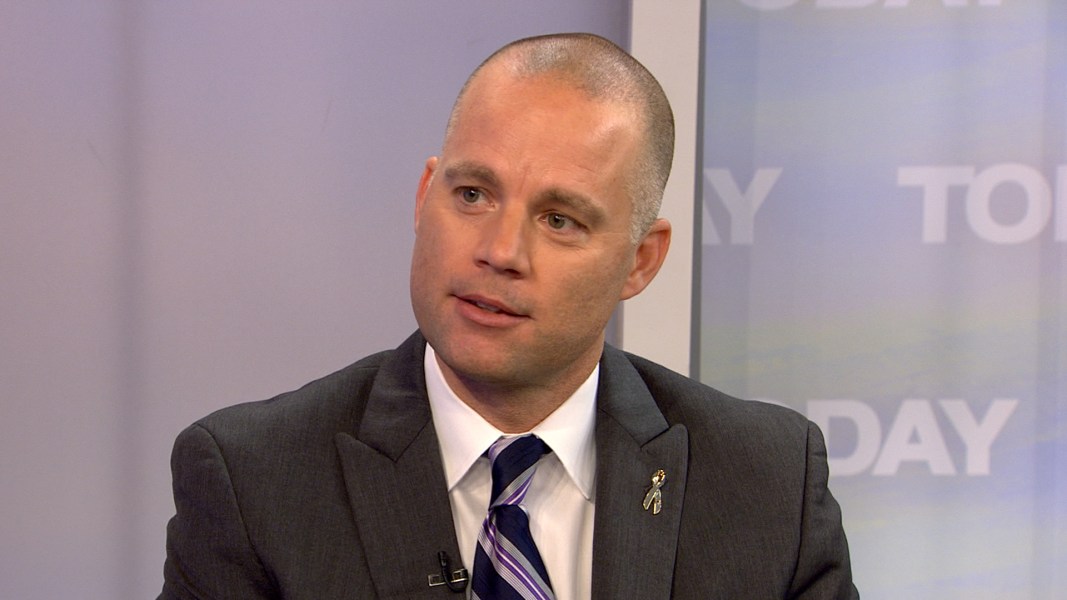Chelsea Manning Set to Be Released From Prison, but Still Not Free
Army whistleblower Chelsea Manning is set to walk out of prison Wednesday — but she won't be entirely free.
Manning's 35-year sentence for leaking an enormous trove of military intelligence records was commuted by President Barack Obama in January. But Manning is still appealing her conviction in a case that could take years, and the government has yet to respond to the appeal.
And all the while, Private First Class Manning, 29, will remain an active duty soldier in the U.S. Army. She won't be paid a salary, and it's highly unlikely that she will be called to serve. But being placed on voluntary excess leave rather than discharged, says one of her attorneys, makes her vulnerable to new military punishment or charges if she steps out of line.
"Chelsea is still subject to the Uniform Code of Military Justice (UCMJ)," David Coombs, Manning's military defense counsel, told NBC News. "She wouldn't be charged again for the same offenses, but if she committed a new crime, the military would still have jurisdiction over her."
Such an offense could be anything from getting into a fistfight to revealing previously unreleased classified information. Manning could even get into trouble with the military for speaking and writing.
"You would want to be careful in terms of what you want to write or say if you're still under military control," said Coombs, who last spoke with Manning in February. "Let's say you write something critical, now you run the real chance of being called on the carpet for that."
The Army private then known as Bradley Manning was just 22-year-old when she leaked nearly 750,000 military files and cables to WikiLeaks. Manning was court-martialed and sentenced in 2013 to 35 years in prison, with opportunity for parole after seven years served.
In a statement given to the TODAY show the day after sentencing, Manning came out as a transgender woman.
Last Tuesday, in Manning's first official statement about her plans after prison, she said, "I can see a future for myself as Chelsea."
Manning's ACLU attorney and transgender advocate, Chase Strangio, told NBC News that the current focus is on "building her life" once she steps out of prison.
"She is looking forward to eating pizza, swimming, playing PlayStation and meeting the many friends who have supported her over the years but who were never allowed to visit in person," said Strangio, who has become Manning's close confidant and conduit to the LGBT community.
"Beyond that, she is waiting to experience life outside of prison before declaring any future plans," Strangio said. "After so many years of government control over her body and gender, I know she is eager to grow her hair, express her gender and negotiate decisions on her own terms."
Obama commuted Manning's sentence after her clemency and appellate attorneys, Nancy Hollander and Vincent Ward, applied for clemency twice. They also appealed Manning's conviction in May 2016, arguing that the sentence was unfairly harsh, that evidence for some of the charges was insufficient, and that solitary confinement was exacerbating struggles with mental health that Manning had in prison.
Manning attempted suicide twice last year — once in July, another in November — while imprisoned in Kansas. She also began a hunger strike last September over what she says was the lack of treatment she was receiving for her gender dysphoria.
Not everyone thinks Manning should be released this week.
President Donald Trump, days before being inaugurated, wrote on Twitter that Manning a "TRAITOR ... who should never have been released from prison."
House Speaker Paul Ryan said at the time that Obama's decision was, "outrageous."
"Chelsea Manning's treachery put American lives at risk and exposed some of our nation's most sensitive secrets."
Jamie Shupe retired as a U.S. Army Sergeant First Class in 2000 after an illustrious 18-year career filled with medals and honors. But like Manning, Shupe had entered the Army as an effeminate young man who would be traumatized by homophobia and transphobia in the military. Shupe retired with an arm injury, legally transitioned to female in 2013, then in 2016 became the nation's first person to change their gender to non-binary, rejecting the categories of male and female altogether.
"I don't agree with Manning being released this early. Why? Outside of all the WikiLeaks stuff, because Manning punched a female superior during wartime, in a combat zone," Shupe told NBC News, referring to an incident when Manning hit a female superior officer, Specialist Jihrleah Showman, in the face just days before arrest in 2010.
"As a former senior enlisted leader, who has been threatened with death and violence for forcing soldiers — bad apples like Manning — to carry out the Army's marching orders, I perfectly understand how dangerous this is."
Until Manning is officially discharged, either by waiving her appeal or by waiting out the long legal process, it's likely the U.S. Army will be keeping a close watch. And if Manning wants to speak freely and critically about the military and her commanding officers, she will have to wait until she is — for the first time as an adult woman — a civilian.



No comments:
Post a Comment